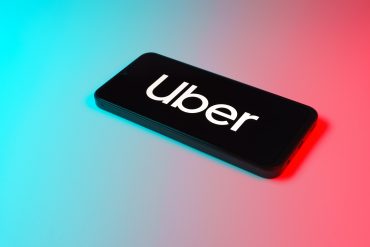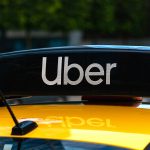
- Regulatory Risk
Uber Sues Los Angeles Lawyers Over Insurance Fraud Scheme
5 minute read

Insurance fraud lawsuits against Los Angeles attorneys highlight rising costs that threaten Uber’s rideshare business model
Key Takeaways
- Third fraud lawsuit this year: Uber files federal case against Los Angeles lawyers and medical providers, alleging fraudulent insurance claims cost the company millions in legal fees between 2019 and 2024.
- Insurance costs reach 33% of fares: In heavily regulated states like California, nearly one-third of rider payments go to insurance expenses, compared to less than 5% in lighter regulation states.
- Medical bills inflated 10x normal rates: Uber claims defendants exploited the $1 million rideshare insurance policy limit by directing passengers to pre-selected providers who issued dramatically inflated bills for minor injuries.
Introduction
Uber Technologies launches its most aggressive legal offensive yet against insurance fraud, filing a federal lawsuit in California targeting a network of lawyers and medical providers. The rideshare giant accuses the defendants of orchestrating a systematic scheme that inflated medical bills and fabricated injuries from minor collisions.
The case represents a strategic shift for Uber as the company battles mounting insurance costs that directly impact fare prices and profit margins. With insurance expenses consuming up to one-third of rider payments in some markets, fraudulent claims pose an existential threat to the rideshare business model.
Key Developments
The federal case was filed Monday in the Central District of California, marking Uber’s third insurance fraud lawsuit this year. Court documents reveal a five-year scheme spanning 2019 to 2024, where defendants allegedly directed passengers from minor accidents to specific medical providers.
These providers then issued inflated bills for negligible or non-existent injuries, with some medical expenses reaching ten times typical amounts. The lawyers involved allegedly exploited California’s mandatory $1 million rideshare insurance coverage to secure disproportionately large settlements.
Uber’s legal team documented patterns of staged accidents and fabricated injuries across multiple cases. The company alleges that networks of attorneys, medical professionals, and drivers collaborated to maximize payouts from the rideshare insurance system.
Market Impact
The legal challenges demonstrate measurable financial impact on Uber’s operations and valuation. The company reports spending several million dollars in legal costs for fraud-related cases, with potential exposure reaching hundreds of millions if similar schemes proliferate.
Uber’s stock price reflects investor sensitivity to regulatory and legal risks. Recent FTC action over billing practices triggered a 3.1% share price decline, illustrating how operational vulnerabilities translate directly to market performance.
Insurance costs vary dramatically across jurisdictions, creating uneven profitability across Uber’s network. States with lighter regulatory frameworks see insurance representing less than 5% of fare costs, while heavily regulated markets like California consume nearly 33% of rider payments.
Strategic Insights
Uber’s legal offensive signals a fundamental shift in how rideshare platforms address systemic operational risks. The company positions these lawsuits as necessary measures to protect consumer affordability and business sustainability.
The fraud cases expose structural vulnerabilities in rideshare insurance frameworks that create perverse incentives for bad actors. Bloomberg reports show how mandatory high-coverage limits, while intended for safety, become attractive targets for fraudulent schemes.
Technology platforms increasingly face sophisticated fraud networks that exploit regulatory requirements designed for traditional industries. Uber’s experience demonstrates how legacy insurance frameworks struggle to address risks in the gig economy.
Expert Opinions and Data
Industry observers view Uber’s aggressive legal strategy as essential for long-term viability. Insurance professionals support the company’s stance, noting that widespread fraud inflates costs for all consumers and threatens insurer solvency.
Uber’s safety reports provide context for the scale of potential claims, documenting 59 deaths in 2019 and 42 in 2020 from driver-related accidents. These statistics highlight why fraudsters target the rideshare sector for inflated injury claims.
Consumer advocates remain divided on Uber’s approach, with some questioning the company’s own regulatory compliance record. Recent FTC action over alleged deceptive billing practices complicates Uber’s position as a fraud victim seeking systemic reform.
Legal experts note that successful prosecution of these cases could establish precedents that protect other platforms facing similar schemes. The outcomes may influence how courts and regulators approach fraud in the broader gig economy.
Conclusion
Uber’s insurance fraud litigation represents a critical inflection point for the rideshare industry’s financial sustainability. The company’s willingness to pursue aggressive legal action reflects the material threat that fraudulent claims pose to operational margins and consumer pricing.
The case outcomes will influence industry standards for fraud prevention and potentially drive regulatory reform around rideshare insurance requirements. Uber’s legal strategy demonstrates how mature technology platforms must actively defend against sophisticated fraud networks that exploit regulatory frameworks designed for traditional industries.








